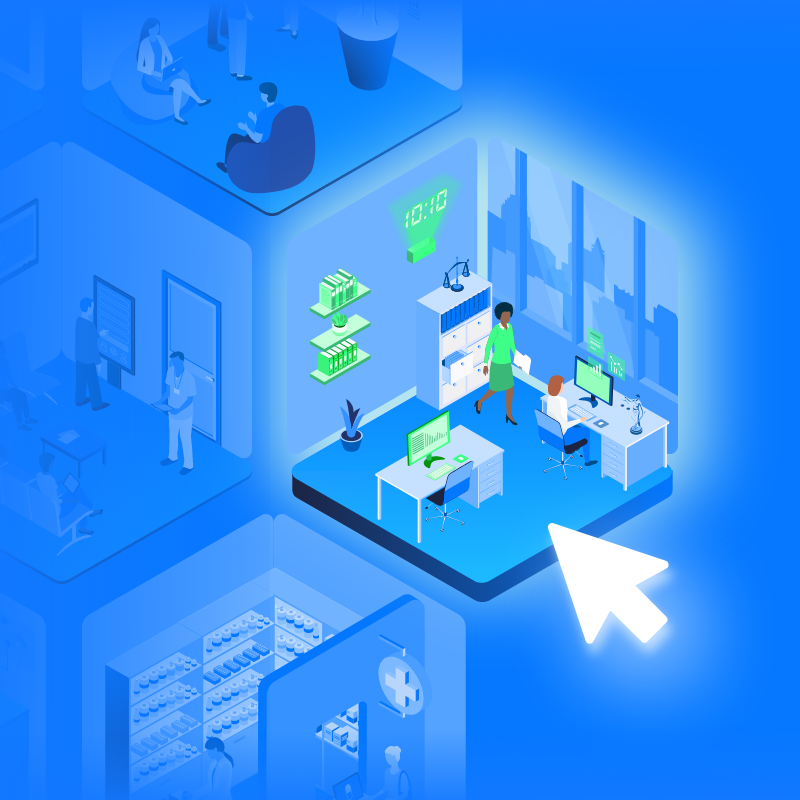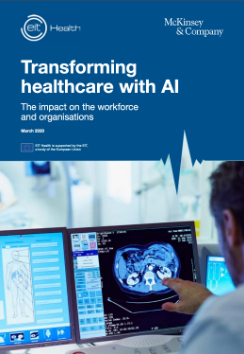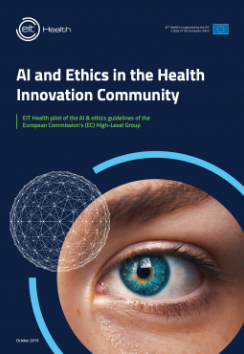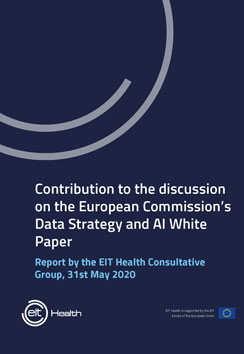Artificial intelligence (AI) has the potential to transform how healthcare is delivered. Yet we need to understand the impact of AI on the healthcare landscape to pave the way for the adoption of AI solutions at scale. That’s why EIT Health is exploring two particular topics – the practical application of ethical considerations for innovators using AI and the impact of AI on healthcare organisations and the workforce.
The benefits of AI are many: accelerating the development of life‐saving treatments, supporting improvements in patient care, and allowing healthcare professionals to spend more time with patients. At the same time, AI can increase productivity and efficiency of care delivery.
For example, a 2019 study reported in The Lancet Oncology has shown the accuracy of an AI system in diagnosing prostate cancer in tissue samples. The system was developed by the team behind Stockholm3 and OncoWatch, two projects supported by EIT Health. The AI system was comparable with 23 international, leading uropathologists in determining the Gleason score, the most important prognostic marker for prostate cancer.
The full potential of AI is still being discussed, but questions have been raised about its potential impact on practitioners and certain specialties, while issues around ethics, use of personal data and AI-related risks are also being considered.

Round Table Series 2020
Healthcare Workforce and Organisational Transformation with AI – Enacting Change
Following the publication of a joint pan-EU report between EIT Health and McKinsey & Company; ‘Transforming healthcare with AI: the impact on the workforce and organisations’, key participants from our Europe-wide network have now further explored how these recommendations could be translated at the national level as part of our 2020 Round Table Series. Research and Round Table discussions have taken place across seven regions in Europe, exploring barriers and enablers for the successful adoption of AI at a member state level, on-the-ground impact of AI, and ultimately helping to outline a national plan of action to accelerate the integration of AI in healthcare. In addition, participants have considered the role the EU could play in encouraging greater adoption of AI in healthcare, and how practitioners and providers can be best supported to fully embrace its potential.

See more in our dedicated hub
The ideas, debate and hot topics from across the Round Table Meetings, culminating in our final report, can be explored via our interactive hub. The content in each virtual ‘room’ of the hub centres on one of six key domains identified as levers for change to drive greater acceptance and utility of AI within healthcare – from leadership, to risk management, to policy. As new content becomes available, new rooms will light up, ready to explore.
Explore the hubPublications
Transforming Healthcare with AI: The Impact on the Workforce and Organisations
AI and Ethics in the Health Innovation Community
Contribution to the discussion on the European Commission’s Data Strategy and AI White Paper
Transforming Healthcare with AI
The Impact on the Workforce and Organisations
Hear from industry experts on the impact of AI on healthcare, which can reduce the administrative burden and free up more time for clinicians to spend with patients. AI is also creating a need for trained, hybrid professionals to work collaboratively across large-scale datasets to enhance patient outcomes.
Opinion Pieces
Enacting Change
As well as providing thought leadership around AI in healthcare, we are developing new products and services that deliver cutting-edge technology to transform healthcare. Discover some of our work in this area.


